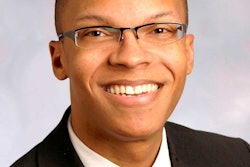For as long as she can remember, Sarah Deer of the Muscogee Creek tribe has had activist sensibilities.
“From a very early age, I knew that the only way people could improve their lives was to speak out,” says Deer, an assistant professor at William Mitchell College of Law.
Deer’s activism and scholarship have led to startling and impactful changes in laws that govern how violent crimes against American Indian women are prosecuted.
Deer worked on Amnesty International’s Maze of Injustice Report, which drew national attention to the fact that Indian women experience the highest rates of sexual assault of any ethnicity.
Deer and her colleague Bonnie Clairmont, a member of the Ho-Chunk tribe and a victim’s advocacy specialist for the Tribal Law and Policy Institute, combed through data from tribes, states and the Department of Justice to discover that 1 in 3 American Indian women are likely to be sexually assaulted in their lifetimes. They also found that 86 percent of rapes reported by American Indian women involve perpetrators outside their race — the highest rate found among any ethnicity. There are many reasons for this shocking data, says Deer.
Many tribes’ judicial and law enforcement arms have been caught in a confusing jurisdictional labyrinth, making it nearly impossible to arrest or prosecute perpetrators. Federal authorities, Deer says, have traditionally been very reluctant to prosecute crimes on Indian reservations. The Department of Justice released statistics last year indicating that U.S. attorneys had declined to prosecute 47 percent of all cases in Indian Country referred to them in 2009. A lack of funding and resources for tribal law enforcement on large reservations has added to the problem.
More insidious, however, according to Deer’s research, is the element of impunity for men who rape Indian women. In her recently published article, “Relocation Revisited: Sex Trafficking of Native Women in the United States,” she argues that Indian women have been viewed as legitimate and deserving targets for sexual violence since the earliest days of colonization.
“Raping Indian women has essentially been a right of conquest,” says Deer.
Deer has offered expert testimony several times before the Senate Committee on Indian Affairs as it gathered information about the proposed Tribal Law and Order Act. This and her work on the Maze of Injustice Report are widely credited with moving passage of the legislation forward. The Act, signed last year by President Barack Obama, provides better training of tribal law officers, creates standardized sexual assault policies and strengthens the capacity of tribal law enforcement to prosecute violent cases more effectively.
She credits her grandfather, Isaac Deer, for her connection to her heritage and awareness of racial justice. She recalls his irascible distrust of the U.S. government and his disgust with how Indians were portrayed in history books. A high school history teacher, he was later elected to the Kansas State Legislature where he was an outspoken leader in the areas of education and labor.
“Grandpa was mad that people weren’t told the truth about Indians. He had a bumper sticker on his car that read, ‘Trust the government? Ask an Indian,’” she recalls.
Deer’s success is due to her ties to her tribal traditions, says Clairmont, who has worked with Deer on a number of projects.
“By maintaining this cultural connection, Sarah keeps integrity in her work. She never forgets where she came from,” adds Clairmont. “It’s a rare gift.”
Deer, the co-author of two textbooks on tribal law, came to William Mitchell after a breast cancer diagnosis in 2006 forced her to reevaluate her life and career as an attorney for the Tribal Law and Policy Institute.
Teaching and the culture at William Mitchell are agreeing with her.
Cancer free for two years and in her second year at the school, Deer observes, “I have been so lucky.”
Title: Assistant professor of law, William Mitchell College of Law
Education: J.D.: Tribal Law and Government Center, Certificate in Tribal Lawyering, University of Kansas School of Law;
B.A.: Women’s Studies and Philosophy, University of Kansas
Age: 38
Career Mentors: Bonnie Clairmont (Tribal Law and Policy Institute)
Words to Live By: Be true to yourself. Don’t try to mold your personality into what the ideal academic should be.















